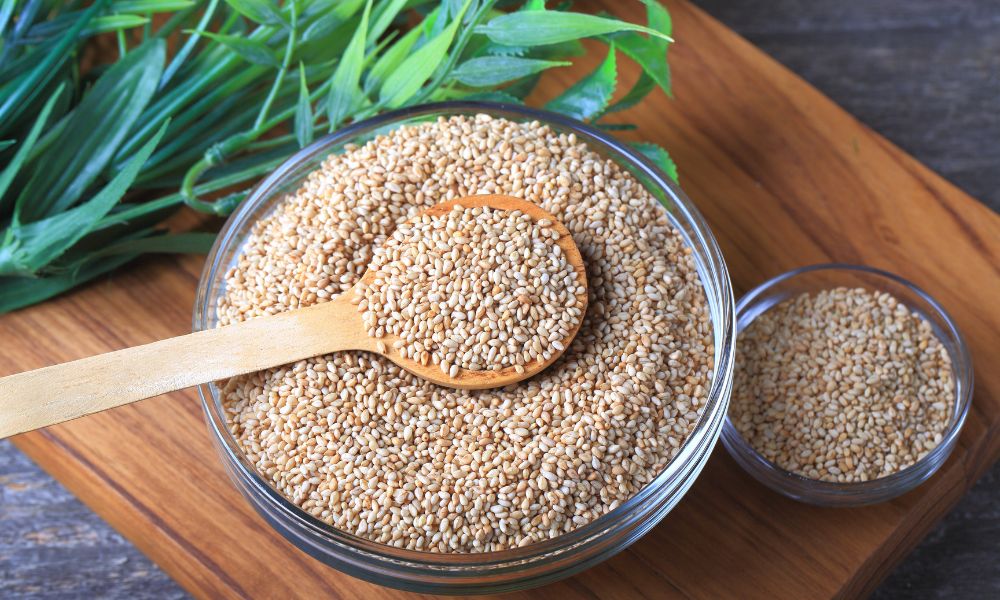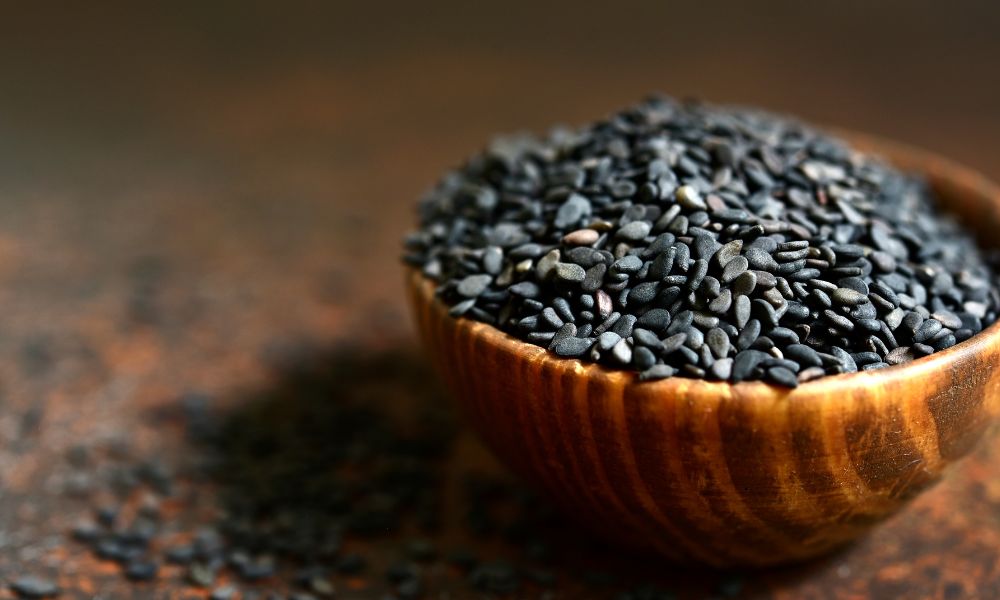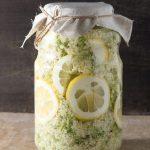When you consider sesame seeds, origins dating back to the dawn of civilization come to light as these tiny nutritional powerhouses continue to find homes in many global cuisine. Sesame seeds are an integral part of dishes around the world – right from garnishing a crusty bagel in New York to being ground into tahini in the Middle East. Small yet mighty, sesame seeds are flavor-packed troopers that truly deserve appreciation.
| Article Highlights |
|---|
| Sesame Seed Variety: Learn about the global culinary uses of the versatile sesame seeds. |
| Shelf Life Factors: Discover the key factors like storage conditions, packaging, and processing that affect sesame seeds’ shelf life. |
| Shelf Life Timeline: Get specifics on the shelf life of sesame seeds — raw or roasted and packed or unpacked. |
| Spoilage Detection: Understand sensory checks (smell, appearance, taste) to identify if sesame seeds have spoiled. |
| Storage Techniques: Equip yourself with proven strategies to store sesame seeds optimally and extend their shelf life. |
| Health Impact: Dig into the health benefits of fresh sesame seeds and the risks of consuming spoiled ones. |
| Recipe Inspirations: Draw inspiration from the Boat Basin Cafe’s sesame seed-based dishes. |
| Key Takeaway: Remember the importance of correct storage for enjoying fresh, flavorful sesame seeds longer. |
Decoding the Sesame Seed Shelf Life: Factors at Play
One question that often pops up is about the shelf life of sesame seeds. Upon initially considering it, one might think that probing into the details is a Herculean task. However, it is just as straightforward as understanding the basics of storage conditions, packaged versus unpacked, and roasted versus unroasted sesame seeds.
The Crucial Role of Storage Conditions
To maximize the shelf life of sesame seeds, getting the storage conditions right is like winning half the battle. The ideal way to think about it is to draw an analogy—state parks are to campers as storage conditions are to sesame seeds. Imagining setting up a camp in a high-humidity forest or under scorching sunlight instantly raises flags of potential problems. Sesame seeds similarly disfavor humidity and excess heat. High humidity can lead to mold growth and warmer temperatures can cause the delicate oils inside the seeds to become rancid. Therefore, the rule of thumb to adhering correct storage conditions with sesame seeds is to avoid moist and hot places.
Packed vs Unpacked Sesame Seeds – Longevity & Flavor
The difference between the lifespan of packed and unpacked sesame seeds can be similar to the choice between your favorite main course and dessert – both incredible in their ways, but their nature changes the scenario. Store-bought packed sesame seeds often come vacuum-sealed to keep air and moisture at bay, increasing their shelf life. Conversely, opening the seal allows external conditions to start affecting the seeds. Thus, the smart move to make the most out of sesame seed storage is to refrigerate the seeds soon after opening the pack to help conserve their freshness and taste.
Understanding the Roasted vs Unroasted Sesame Seed Conundrum
Apart from examining the roasted vs raw sesame seed shelf life, a significant factor to consider here is also the flavor. Roasting reduces the oil content inside the sesame seeds by expelling moisture, thereby extending its lifespan. However, an aftereffect can be a potential reduction in certain heat-sensitive nutrients. Ultimately, the choice between roasted and raw sesame seeds boils down to personal preference and intended use.
Shelf Life of Sesame Seeds: Specific Time Frames
Understanding the shelf life of sesame seeds requires attention to their varying forms and storage techniques. To make this clear, here’s a rundown on their typical shelf life under optimal storage situations:
| Form of Sesame Seeds | Shelf Life at Room Temperature | Shelf Life in Refrigerator | Shelf Life in Freezer |
|---|---|---|---|
| Raw, Unopened | Up to 2 years | Up to 3 years | Up to 4 years |
| Raw, Opened | Up to 3 months | Up to 6 months | Up to 1 year |
| Roasted, Unopened | Up to 9 months | Up to 12 months | Up to 2 years |
| Roasted, Opened | Up to 1 month | Up to 4 months | Up to 1 year |
Please note that these time frames provide a general guideline only. Always check your sesame seeds for any signs of spoilage before use. This table reflects the typical shelf life, but remember that how you store the seeds can considerably impact their freshness and taste.
Spotting Spoiled Sesame Seeds: Know Your Senses Test
After understanding the factors affecting the sesame seed shelf life, the next task is to detect signs of spoilage. Here are the primary identifiers to see whether your sesame seeds have bitten the dust – categorized under smell, appearance, and taste.

The Sniff Check: The Smell Test
Healthy sesame seeds radiate a gentle nutty aroma. If they are off, you’ll identify a bitter or stale scent. So, conducting a ‘smell test’ is integral for verification.
Visual Observations: Judging By Appearance
Fresh sesame seeds exhibit a slight glossy look. Dull or darker coloration is generally indicative of deterioration. Moreover, inspect thoroughly for mold or pests infestation. The presence of green or brown spots are a categorical indicator of spoilage.
Determining Final Verdict: The Taste Test
The last fine-tuned tool in your arsenal is ‘taste’. Fresh sesame seeds embody a sweet nutty flavor. If they taste bitter or off in some way, it’s probably best to discard them.
Proven Techniques for Storing Sesame Seeds to Prolonged Shelf Life
Efficient storage techniques significantly influence the freshness and longevity of sesame seeds. Building upon my experience at the Boat Basin Cafe and countless kitchen trials, here are security-tested pointers for effectively storing sesame seeds.
Winning the Container War: Choose Airtight
In the battle of containers, choose airtight ones to emerge victoriously. Opt for glass or stainless-steel containers with a firm seal to prevent exposure to air and moisture, the factors primarily responsible for reducing the shelf life of sesame seeds.
Location Matters: Finding Ideal Storage Spots
Continuing from our analogy, sesame seeds, like campers, thrive in cool, dark spots. Store them in your refrigerator or pantry, depending on the availability and suitability. You can also freeze sesame seeds for an extended shelf life.
Keeping Them At Bay: Shielding from Sunlight or Moisture
Sesame seeds detest sunlight and can easily tan under exposure. Thus, storing them away from direct sunlight is recommended. Similarly, moisture is not their ally either, as it could result in fungal growth. So, your storage logistics should guarantee that the selected spot is not exposed to dampness.
These storage suggestions not only give your sesame seeds longevity, but also maintain their healthful benefits, enabling you to indulge in their flavors at your convenience. Ensure you follow these suggestions, alongside the specifics of shelf life discussed earlier, to maintain the best potential freshness and taste in your sesame seeds.
Lifely Benefits of Consuming Fresh Sesame Seeds

Indulging in fresh sesame seeds is akin to opening up a treasure trove of health benefits. They are enriched with beneficial vitamins, minerals, healthy oils, and antioxidants. Components like calcium, magnesium, and fiber present in sesame seeds contribute significantly to bone health, improved digestion, and a healthier cardiovascular system.
Consuming spoiled sesame seeds can not only deprive you of these health benefits but could also lead to potential health risks.
Taste Explorations: Common Dishes Incorporating Sesame Seeds
As an integral part of the Boat Basin Cafe, copious dishes drew their essence from the inclusion of sesame seeds. Here are some favorites:
- “Sesame Chicken Skewers” that create a perfect blend of sweetness and nuttiness.
- “Asian Sesame Salad” that owes its delightfully fresh and light flavor profile to sesame seeds.
- “Boat Basin Cafe Tahini Sauce” that pairs fantastically with a multitude of dishes.
This exposure underscores the transformative power of fresh sesame seeds in elevating even the simplest meal into an gastronomic adventure. Drawing inspiration from these, why not experiment with your own variations of recipes that demand fresh sesame seeds?
👩🍳You may like: General Tso vs Sesame Chicken: They Aren’t the Same!
Wrapping Up: Key Takeaways on Shelf Life of Sesame Seeds
Understanding the shelf life of sesame seeds is necessity to safely savor their rich, nutty flavor and their numerous health benefits. Always remember, correct storage can drastically lengthen the lifespan of sesame seeds, enabling you to indulge in their flavors at your convenience.
I trust this guide elucidates the mystery around the longevity of these tiny nutritional powerhouses and gives you adequate tools to preserve and consume them in the most healthful manner possible. Embrace the wisdom imparted by the Boat Basin Cafe and make sure you’re always using the freshest ingredients. If you use sesame seeds in your culinary explorations or have a favorite recipe, do share your experiences and thoughts.
FAQs
Why do sesame seeds go bad?
Natural oils inside sesame seeds can turn rancid if exposed to improper storage conditions, such as humidity and heat. Always ensure sesame seeds are stored in a cool, dark and dry place to maximize their shelf life.
How do I confirm the freshness of sesame seeds?
Conduct a three-step test—smell, look, and taste. Fresh sesame seeds smell nutty, habe a glossy appearance, and a sweet, nutty flavor confirms their freshness.
What is the effect of humidity on sesame seeds’ longevity?
Humidity may lead to moisture accumulation, triggering mold growth and causing the sesame seeds to spoil quickly. Store your seeds in areas where the humidity is relatively low for maximum shelf life.
Is there a difference in storing roasted vs raw sesame seeds?
Roasted sesame seeds have a lower moisture content, which aids in prolonging their shelf life. However, roasting could result in the loss of some heat-sensitive nutrients. On the other hand, raw sesame seeds retain all their nutrients but tend to have a shorter shelf life. To maximize the shelf life of both types, store them in the refrigerator.
Can I consume sesame seeds past their expiration date?
Generally, if properly stored, sesame seeds can be consumed past their best-before date, although the quality and nutritional content may be reduced. Always use your judgment, and dispose them if there are any signs of spoilage.
Can I freeze sesame seeds for extended shelf life?
Yes, storing sesame seeds in the freezer can prolong their shelf life while maintaining their nutritional value. To freeze, place the sesame seeds in an airtight container or a freezer-proof bag and store it in the freezer.






